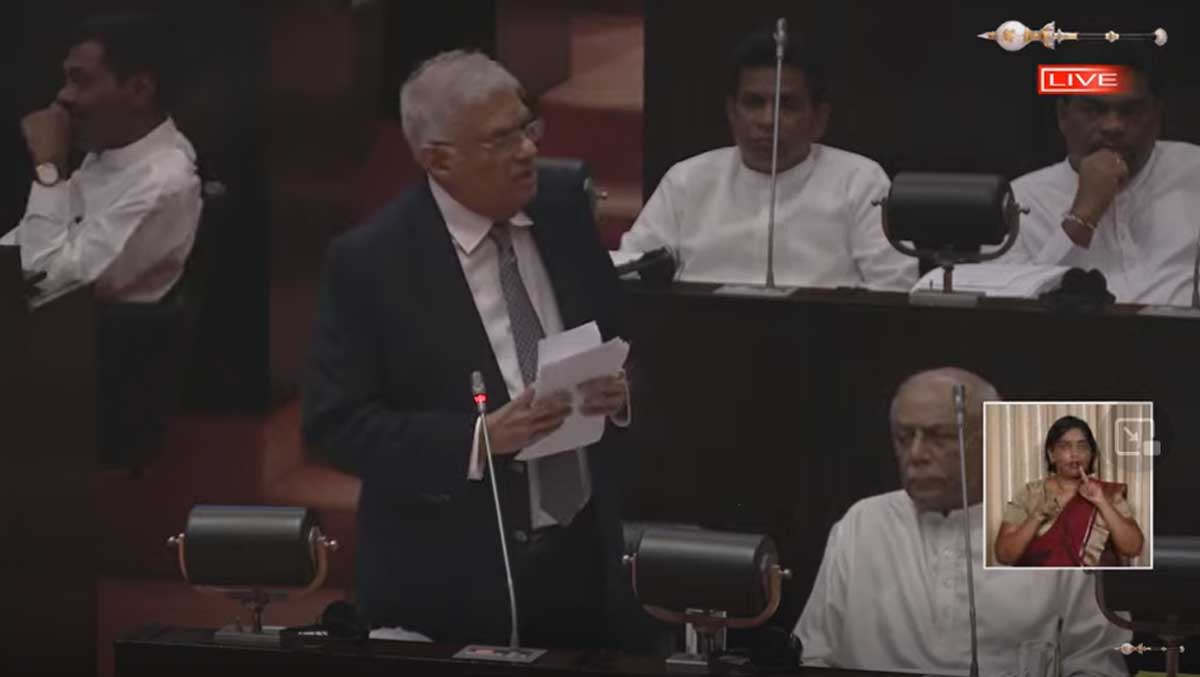General
Sri Lanka seeking debt moratorium till Dec 2027, repayments by 2042: President


ECONOMYNEXT – A steep salary hike by the central bank outside parliament’s control of public finances has come under fire at a meeting of legislators at a meeting in parliament where officials of the monetary authority were questioned.
Party leaders had slammed the officials for giving themselves salary hikes of up to 70 percent following a severe currency collapse saying they had no ‘ethical right’ to do so when the entire public was suffering.
The meeting was attended by the leadership and union leaders of the agency, a statement from the parliament said.
The original bill submitted to parliament by the agency had a provision to pay salaries as an independent decision by the clause was struck down by the Supreme Court, saying it needed a constitutional amendment, party leaders have said.
Though the central bank was allowed to operate independently, there was no provision to hike salaries as it wished, party leaders had said.
However, central bank officials had responded that they had the powers under the Central Bank Acts 5, 8 and 23 articles where they had powers to cover all the expenses of management.
But party leaders had countered saying while there were provisions to meet expenses, there were no specific provisions for salaries.
Under article 23 of the law they can decide on a salary, parliament had ultimate control, they had countered.
Central bank officials had countered saying they paid themselves salaries with the funds of the central bank but not the consolidated fund.
Party leaders had said the central bank’s funds are also public funds and parliamentary approval was required.
A three year collective agreement said to have been signed between unions and the management of the central bank had happened even under the same process, as a custom, central bank officials have said.
They were then questioned whether the agreement was registered with a Department of Labour.
There was no such registration, it was said.
Legislators had claimed that the collective agreement could not be implemented into effect without registration.
The intention of passing a new central bank Act was not to give staff the powers to raise salaries as they wished but to give them the power to make correct decisions on the economy of the country without political interference, party leaders had said.
If there was a legal power on some basis to raise salaries, hiking salaries through an insensitive way (asung-wedi) when the rest of the country was suffering had not ethical by any measure (kisi-sethma-sadacharathmaker nowener) and cannot be condoned.
Where there were requirements to raise salaries in a number of sectors, privileges being taken by only one sector was not fair, party leaders had said.
The monthly increase in the salary bill was 232 million rupees, party leaders had been told.
The central bank triggered the worst currency crisis in its history following rate cuts to target ‘potential output’ in 2022.
The currency collapse and 70 percent inflation came after denial of monetary stability to the country through three back-to-back currency crises by so-called ‘flexible’ inflation targeting without a clean float, despite ending a 30-year war.
Due to the existence of the central bank and its money printing to cut rates, Sri Lanka has forex shortages, had no free flow of capital, no free trade, salary hikes announced in the budget outside annual scales, social unrest, out-migration and political instability.
Before the central bank was set up in 1950 giving powers to economic bureaucrats to print money, breaking an East Asia style monetary regime, Sri Lanka was said to have among the best economic indicators in Asia outside of Japan. (Colombo/Mar05/2024)








